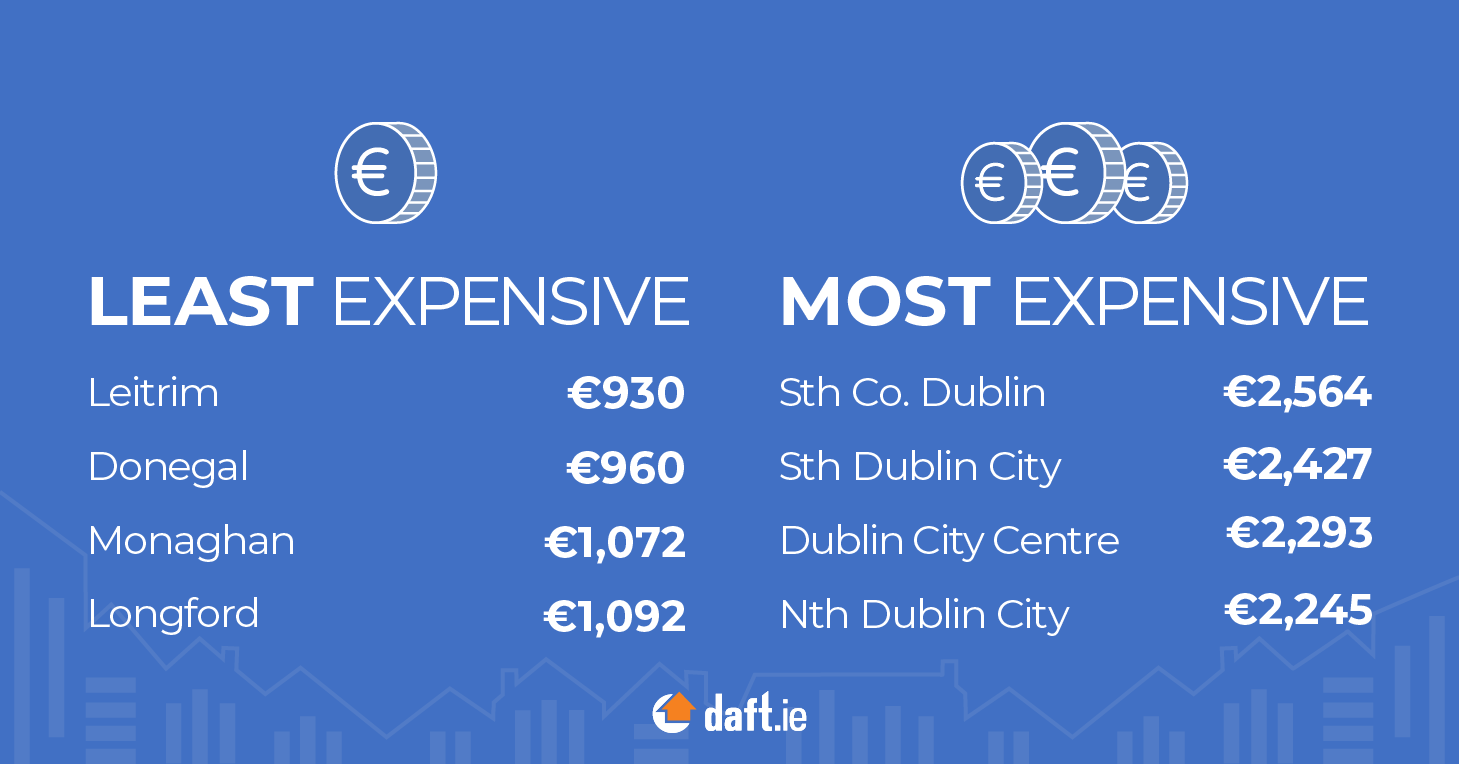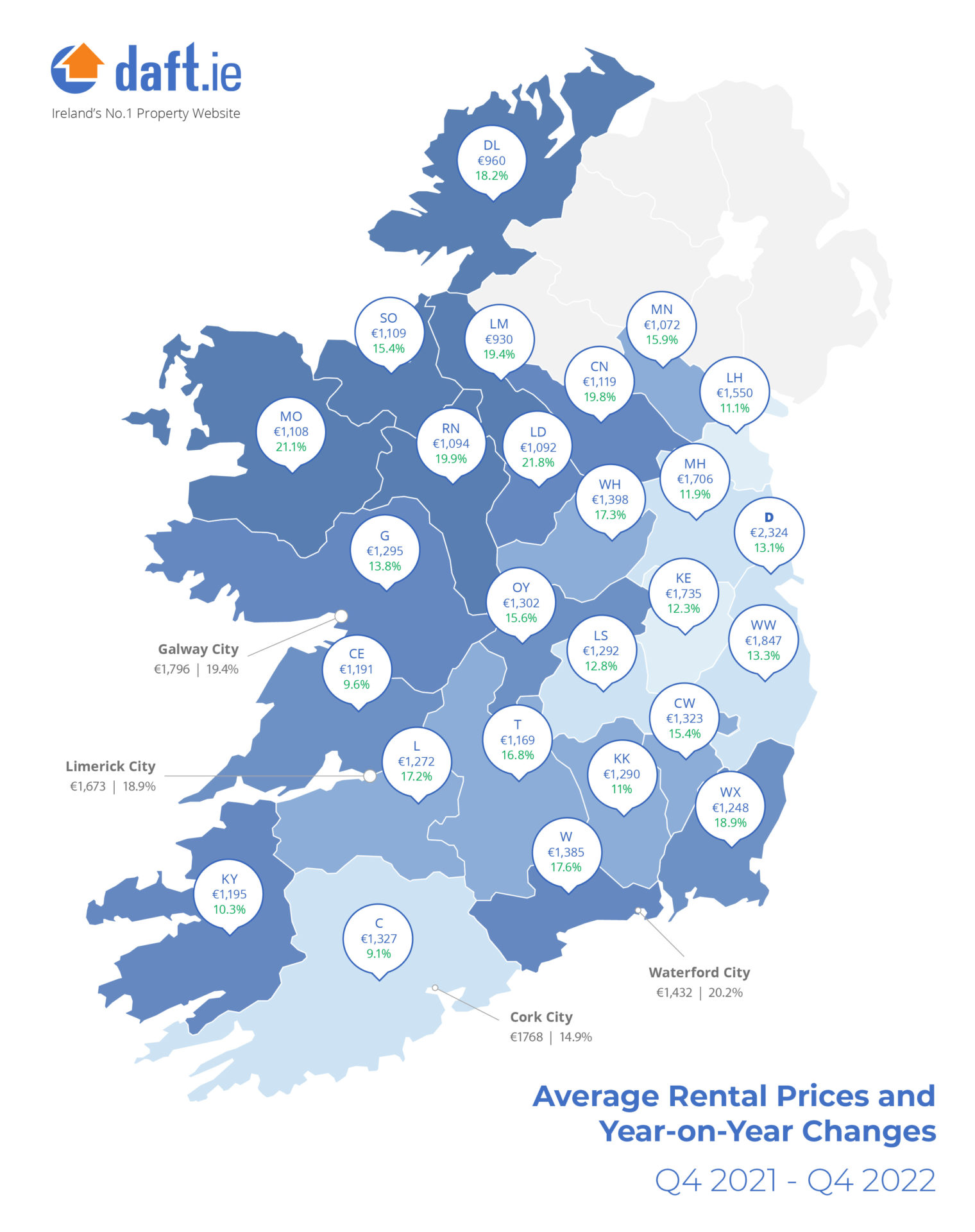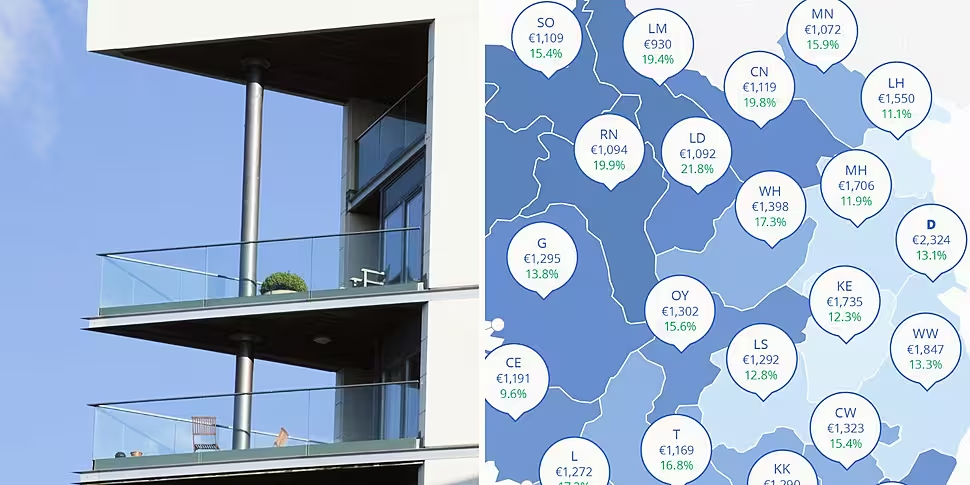Rents increased by an average of 13.7% in the final quarter of last year, a new Daft.ie report has found.
The average market rent nationwide between October and December was €1,733 per month - up 2.7% compared to the third quarter of 2022, and 126% above the low of €765 seen in late 2011.
All parts of the country were experiencing substantial year-on-year increases in open market rents.
In the year to December, the rate of inflation in Dublin was 13.1%, Cork City was 14.9%, Limerick City was 18.9% and Waterford City was 20.2%.
 Source: Daft.ie
Source: Daft.ieOutside the cities, the average annual increase in market rents was 13.6%.
Nationwide there were just 1,096 homes available to rent on February 1st - down over 20% on the same date a year ago, and roughly one-quarter the average level of availability during 2015 to 2019.
The report said the increase in market rents "is driven [by] extraordinary shortages in the availability of rental accommodation."
Average market rents, and year-on-year change, 2022 Q4
- Dublin: €2,324, up 13.1% year-on-year
- Cork city: €1,768, up 14.9%
- Galway city: €1,796, up 19.4%
- Limerick city: €1,673, up 18.9%
- Waterford city: €1,432, up 20.2%
- Rest of the country: €1,318, up 13.8%
The figures relate to open market rents, but the report also includes an index of rents paid by sitting tenants.
It shows that, on average, these rents have increased by 3.8% on average over the last 12 months.
Since the introduction of Rent Pressure Zones in 2016, rents of sitting tenants have increased by 19% on average, compared to an average increase in open-market rents of nearly 75% over the same period.
'The only real solution'
Ronan Lyons is Associate Professor of Economics at Trinity College Dublin and author of the report.
"The figures in this latest Daft.ie report confirm, once again, the chronic shortage of rental housing in all parts of the Irish market," he said.
"The extraordinary collapse in availability over the past two years has brought about record increases in open market rents.
"New rental supply is the only real solution to a shortage of rental homes."
 Source: Daft.ie
Source: Daft.ieRonan said housing has now established itself "as the dominant political issue in recent years."
"While much of the policy effort is focused on homeownership, a variety of demographic trends, including delayed family formation and increased longevity, have contributed to a growing diversity in living arrangements," he said.
"This in turn will mean more homes in the rental sector and thus a more tenure-neutral housing policy is required.
"Among the worst affected cohorts are younger adults, with the median adult age of leaving the parental home having grown almost 50% in the last decade.
"Policymakers must have a clear plan on how their housing needs will be met, a plan that includes tens of thousands of new rental homes being delivered this decade in all major towns and cities," he added.
Labour Party leader Ivana Bacik has called for an extension to the eviction ban, saying that if it were to end on April 1st, there would be a "deluge of evictions."









